
Meghan Rosen is a senior writer who reports on the life sciences for Science News. She earned a Ph.D. in biochemistry and molecular biology with an emphasis in biotechnology from the University of California, Davis. Her dissertation work involved studying mutated proteins in liver and kidney cancer. She later graduated from the science communication program at UC Santa Cruz. Prior to joining Science News in 2022, she was a media relations manager at the Howard Hughes Medical Institute. Her work has appeared in Wired, Science, and The Washington Post, among other outlets. Once for McSweeney’s, she wrote about her kids’ habit of handing her trash, a story that still makes her (and them) laugh.

Trustworthy journalism comes at a price.
Scientists and journalists share a core belief in questioning, observing and verifying to reach the truth. Science News reports on crucial research and discovery across science disciplines. We need your financial support to make it happen – every contribution makes a difference.
All Stories by Meghan Rosen
-
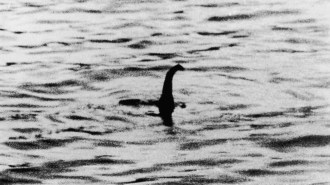 Animals
AnimalsSeen Bigfoot or the Loch Ness Monster? Data suggest the odds are low
Floe Foxon is a data scientist by day. But in his free time, he applies his skills to astronomy, cryptology and sightings of mythical creatures.
-
 Health & Medicine
Health & MedicineMouth taping may be a trending sleep hack, but the science behind it is slim
Mouth taping is big on social media, but few studies have evaluated it. Some evidence suggests that sealing the lips shut may help people with sleep apnea.
-
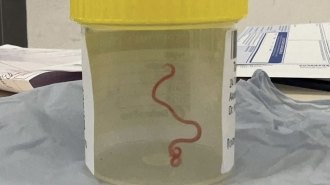 Health & Medicine
Health & MedicineDoctors found a live python parasite in a woman’s brain
The infection is the first known case of the worm Ophidascaris robertsi in a person. It’s not the only type of worm that can infect human brains.
-
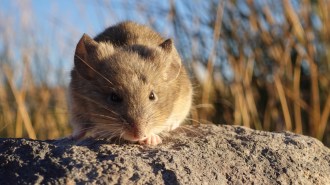 Animals
AnimalsThe world’s highest-dwelling mammal isn’t the only rodent at extreme elevation
After discovering a mouse living nearly 7,000 meters above sea level, scientists scoured other extreme environments to make sure the find wasn’t a fluke.
-
 Health & Medicine
Health & MedicineWhat we still don’t know about Wegovy’s effect on strokes and heart attacks
A clinical trial suggests that semaglutide, a drug used to treat obesity and diabetes, may protect cardiovascular health in a broad group of people.
-
 Health & Medicine
Health & MedicineWhy are more people under 50 getting colorectal cancer? Scientists have some clues
Science News spoke with doctors about their research into early-onset colorectal cancer. Here’s what they’re learning and what questions remain.
-
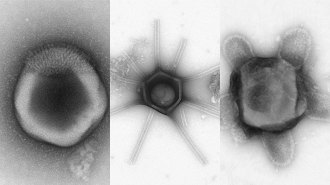 Life
LifeA fantastical world of potential giant viruses lurks beneath the soil
Giant viruses were already known for their large sizes. A close look at a scoop of soil shows that they may come in a variety of funky shapes as well.
-
 Health & Medicine
Health & MedicineMany sports supplements have no trace of their key ingredients
A chemical analysis of 57 supplements found that 40 percent had undetectable amounts of key ingredients. Only 11 percent had accurate amounts.
-
 Neuroscience
NeuroscienceElyse G.’s brain is fabulous. It’s also missing a big chunk
A new project explores interesting brains to better understand neural flexibility.
-
 Earth
EarthWildfires aren’t going away. Here’s how smoke can affect your health
How does repeat exposure to wildfire smoke affect our health? Three experts weigh in on the massive air pollution fueled by Canada’s ongoing fires.
-
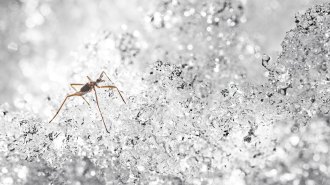 Animals
AnimalsA grisly trick helps snow flies survive freezing: self-amputation
When a snow fly’s leg begins to freeze, a quick amputation can prevent ice from spreading, keeping the cold-hardy insect alive.
-
 Health & Medicine
Health & Medicine‘In the Blood’ traces how a lifesaving product almost didn’t make it
There’s plenty of drama in Charles Barber’s new book, which explores why a blood-clotting invention was initially dismissed.